




 |
   |
 |
 |
The Other Side (1994, 43.54) **½/TBeyond the SkyInside the Tower Ophelia My Time Has Come Lifting the Veil Golden Leaves The Last Time The Key |
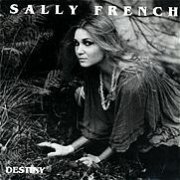 |
Destiny (2002, recorded 1993?-2002?, 63.43) ***/TT |
|
| Lifting the Veil Alone Lillie May Ophelia Golden Leaves Slips My Mind Beyond the Sky Call Another Doctor |
The Mist of Avalon Remember Me A Mermaid's Lament Inside the Tower The Key |
|
Current availability:
Mellotrons used:
Sally French recorded an album, The Other Side, in the early '90s at my old friend Dave Etheridge's studio, released on ill-fated Dutch neo-prog label S.I., six of its eight tracks turning up on 2002's Destiny compilation. The original album's material falls into a (very) vaguely Kate Bush-esque singer-songwriter/pop/prog-lite vein, all effectively vehicles for French's excellent voice, if somewhat lightweight musically. Her strongest performance is probably Inside The Tower, while the two tracks missing from Destiny, My Time Has Come and The Last Time, are missing for a very good reason. Dave played the Mellotron (his M400 and possibly MkII) on opener Beyond The Sky, with string and choir parts that, sadly, don't make themselves too apparent.
Destiny jumbles the original album's tracklisting, throwing seven newer recordings in amongst the older, although the new running order seems to work well enough. Stylistically, there's little to choose between the two eras, most of the newer material sounding not unlike the older and French's voice remaining consistent (we'll quietly ignore the bits where she drifts out of tune), although anyone looking for full-on symphonic prog will probably be disappointed. Sally's husband, Peter Darley (ex-Dawnwatcher), plays Mellotron on the newer tracks, with a hefty helping of M400 (his old machine?) strings on Lillie May and strings from (apparently) Barclay James Harvest's old M300 on The Mist Of Avalon and A Mermaid's Lament.
To reiterate, these are not your typical prog albums, even from the early '90s, but fans of luminous female vocals may well wish to hear Ms French's work. Only one of the four Mellotron tracks on Destiny is 'classic', but that's one 'classic' more than most albums. Many thanks to Dave Etheridge for his help with these reviews.
See: Dawnwatcher
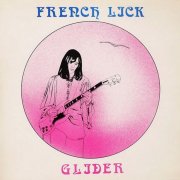 |
Glider (1976, 32.18) ***/T |
|
| Moontune Watercolours Ibiza a) Magic Island (excerpt) b) Flight c) Once in a Blue Sun Michael in Paris Sleuth Talk About Love |
Glider a) Planet b) The Music of Our Lives c) Love is in Your Eyes |
|
Current availability:
Mellotron used:
French Lick? Yet another little-known US progressive act, this time from Fullerton, California, who managed the obligatory one, obscure album, 1976's Glider. Did I say progressive? More 'rather mainstreamish West Coast rock with progressive touches', at its best on proggy opener Moontune, the three-part Ibiza and their Stygian pomp rock moves on the similarly three-part title track. Worst? The terribly wet Michael In Paris and the crummy pop/rock of Talk About Love.
John Higgins guests on Mellotron on opener Moontune, with a pleasant, if mildly inessential string part, although all the other strings on the album are vocalist/guitarist Jon Willoughby's Elka string synth. Given that this isn't available on anything more official than various blogs (so, not official at all), I wouldn't splash out what I've seen described as a 'three-figure sum' for an original copy of this, although it's probably worth a listen.
 |
Winter Women/Holy Ghost Language School (2006, 108.39) **½/TTTTT |
|||
| Under the Hood at the Paradise Garage The Pennsylvania Rock Oil Company Resignation Letter Up the River Ruth vs. Rachel Her Chinese Typewriter Big Bill Crib and His Ladies of the Desert Don't You Remember? |
Becha Don't!!! p.s. 213 Mini-School Theme From Never Going Home Again Motorman Quick as Cupid I Love You Cedric Servant in Distress |
Hialeah Wisconsin River Blues Seventh Loop Highway Holy Ghost Language School The Cross and the Switchblade I Started Using Alcohol at the Age of Eleven Do You Like Blondes? |
Azusa St. Topeka and San Antonio A Mystical Preparative to Lewdness Ship Scrap Beach Business First Day of School Things Were Going So Well All in Vain or the Opposite Moral and Epilogue |
|
Current availability:
Mellotron used:
Matthew Friedberger is the musician half of brother/sister duo The Fiery Furnaces, so it comes as no surprise to hear that his solo debut, 2006's sprawling double-disc Winter Women/Holy Ghost Language School, is similarly indie in intent, or at least, the first disc is. Now, most online commentators have thrown their hands up in horror at the more avant-garde second disc, so is it only me who actually prefers it? Winter Women is largely tedious, 'attempting to be experimental' indie, with few actual songs, while Holy Ghost Language School actually manages to be at least slightly 'out there', although I can't honestly say that especially increases its listenability.
Friedberger plays what I presume is a real Mellotron on almost everything on disc one and a handful of tracks on disc two, clustered together at the end (Seventh Loop Highway is the first track, in case you're still listening), with string and flute parts all over the place and occasional cellos on the second disc, although I'm ignoring the woodwindish sounds, which are probably something else. So; do you bother with this self-indulgent mess in order to hear a great deal of Mellotron? Up to you, pal; I shan't be bothering with this again in a hurry, but if you wish to experiment, feel free.
See: Fiery Furnaces
 |
Purple Burt (2005, 46.28) ***/T |
|||
| Purple Burt Purple Words Invisibility More Purple Words Where'd Ya Get That Dirt? Even More Purple Words Make it Snappy Did Someone Say Purple Words? |
Wonder Where Words of Purple I Miss My Daddy Purply Wordings Slurping & Burping Wordy Purplings Color Feel Words That Are Purple |
What a Gas! Purple as Words Do-re-mimi Words, Purple Try This on for Size Both Purple and Wordy Pluto Purple? Word |
Flavor Day Again With the Purple Words I Hope Words Until I'm Purple in the Face Smile Awhile |
|
Current availability:
Mellotron used:
It looks like there's more than one Mitch Friedman, as the man behind 2005's Purple Burt probably isn't the world-class bassist, although both hail from NYC. (Or is he?) This is one of those charming little children's albums made by rock/pop singer-songwriters (see: Robert Schneider's Robbert Bobbert & the Bubble Machine and others), this one concerning the strange life of Purple Burt, who manages to be not only purple, but invisible. Work that one out. Slightly less obviously childlike than several similar, I can still see this appealing to kids (as they say) of all ages.
Two of XTC contribute, Andy Partridge and Dave Gregory, who plays upfront Mellotron string and flute parts on Color Feel, to good effect. And if you want to know how Burt can be simultaneously purple and invisible, you'll just have to buy the album.
See: XTC
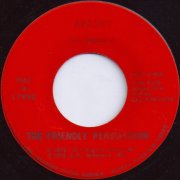 |
7" (1974) ***/TTT Apathy Yours Truly Jack the Ripper |
Current availability:
Mellotron used:
The Friendly Persuasion? Who? Unsurprisingly, there's next to no information available about this thoroughly obscure band, other than that they hailed from Warren, Michigan (a suburb of Detroit) and that their (probable) lone single, Apathy, is awful. Given that it's nowhere to be found online, we may never know. Its flip, however, Yours Truly Jack The Ripper, is another matter, a truly deranged mock-horror masterpiece, all Hammer Horror narration and, er, rather ordinary mid-'70s pop/rock moves, if we're going to be honest. And I think we should.
Mellotron? Yours Truly opens with wobbly church bells from the FX set (player, of course, unknown), before doomy cellos kick in under the spoken intro. Strings on the verses, shifting into distortion by the end, underpinned by more of those cellos, make for a bizarre-yet-satisfying Mellotron treat. Not only is this on YouTube, but Belter have seen fit to include it on 2015's Ultimate Bonehead! Vol. Four. Hurrah!
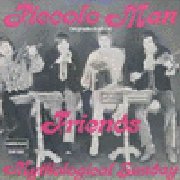 |
7" (1968) ***/TT½ Piccolo Man Mythological Sunday |
Current availability:
Mellotron used:
Friends were The Flower Pot Men under another guise; amusing, since the band were a studio creation anyway. Piccolo Man is pretty awful and was a deserved flop, but its flip, Mythological Sunday, is a fantastic, Mellotron-driven psych epic, well worth hearing. You'll be lucky to find an original, but both tracks are easily available on the Very Best of the Flowerpot Men CD, while the b-side turns up on The Flower Pot Men's The Peace album, belatedly released in 2000.
See: Flower Pot Men
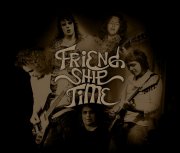 |
Friendship Time (2007, recorded 1975-76, 47.33) ****/T½AnonymitetenEngine Clouds Martins Lilla Ombadidilio Watersong Crawling Up |
Current availability:
Mellotron used:
Friendship Time are yet another obscure '70s progressive outfit, this time from Sweden, who recorded an album's-worth of material, yet were unable to get it released at the time, although it was apparently lined up to appear on Virgin. Thankfully, those nice Mellotronen people (via Trettioåriga Kriget's drummer) unearthed the tapes, sticking them out on CD in 2007 as Friendship Time, finally allowing us to hear the band's oeuvre.
Despite the lack of a full-time keyboard player, the two-guitar band's style bears comparison with Yes, to the point where I keep hearing little snippets of that band's catalogue leaking through into their own compositions, notably on opener Anonymiteten and closer Crawling Up. Happy the Man are also a valid comparison, making me reflect on just how much they were influenced by Yes themselves. Like most of the best prog bands, Friendship Time feature lengthy instrumental sections (and one fully instrumental track), vocals taking a lesser role in their sound; I suspect that, were it not for 'commercial considerations', they might've dispensed with Leif Fröling's vocals altogether, which may not have been a bad thing. Although their default setting was 'lengthy and complex', Martins Lilla and Crawling Up are shorter efforts, condensing their style into a more compact (yet in no way single-orientated) setting.
Bassist Martin Cehra doubled on occasional Mellotron, with string swells on Anonymiteten, a couple of chordal string parts on Ombadidilio and choirs on Watersong, although, in an odd echo of the similarly keyboard-player-free Trettioåriga Kriget, given the tapes' re-emergence, it's far from a defining feature of the band's sound. Once again, kudos to Mellotronen for shining a light onto the dustier corners of Scandinavian progressive rock and making an otherwise almost completely forgotten band's work available for the first time. Not much Mellotron, but that's hardly the point, really.
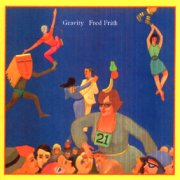 |
Gravity (1980, 47.04) ***½/½ |
|
| The Boy Beats the Rams (Kluk Tluce Berany) Spring Any Day Now Don't Cry for Me The Hands of the Juggler Norrgården Nyvla Year of the Monkey What a Dilemma Crack in the Concrete |
Come Across Dancing in the Street My Enemy is a Bad Man Slap Dance A Career in Real Estate Dancing in Rockville, Maryland |
|
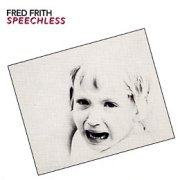 |
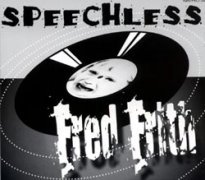 |
Speechless (1981, 44.12) ***½/½ |
|
| Kick the Can (part 1) Carnival on Wall Street Ahead in the Sand Laughing Matter/Esperanza Women Speak to Men; Men Speak to Women A Spit in the Ocean Navajo Balance |
Saving Grace Speechless Conversations With White Arc Domaine de Planousset Kick the Can (part 2) |
||
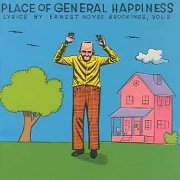 |
Place of General Happiness: Lyrics By Ernest Noyes Brookings, Vol. 2 (1991) ***½/TT½[Fred Frith contributes]Life of a Detective |
Current availability:
Mellotrons used:
Fred Frith came to prominence in the mid-'70s as guitarist with art-rock supremos Henry Cow, concurrently releasing solo albums and working with the likes of Robert Wyatt and The Residents. The Henry Cow/Slapp Happy conglomerate had folded by the end of the decade, although the related Art Bears carried on for a few more years, leaving Frith free to pursue his varied musical interests, not that being a band member seemed to stop him before. These were the days before 'solo guitarist' inevitably meant fretboard wankery of the highest order, especially if one operated at the avant-garde end of the spectrum; while Frith isn't exactly what you'd call a superstar, he has critical acclaim a-plenty and a devoted hardcore of admirers who buy anything with his name on it.
1980's Gravity was his second solo release, Frith backed on side one by Samla Mammas Manna and on the flip by the Muffins. He actually promoted it as a 'dance' album, in the truest sense of the word and as an antidote to the then-prevailing dumbed-down disco ethos, by incorporating all kinds of what are now described as 'world' musics. The end result is an entertaining smögåsbord of influences, many of them Central/Eastern European, some of it sounding quite Henry Cow-like, much of it sounding pretty much like nothing else you've heard. Frith plays a smattering of Mellotron, with flutes on Come Across.
He followed up with 1981's Speechless, which, true to form, is full of weird, dissonant, cut-up pieces like Laughing Matter/Esperanza and A Spit In The Ocean, some recorded live, or adapted from live pieces. It's pretty obvious, listening to this, that Frith has influenced a good many people, not least Cardiacs, who were shifting up a gear around this time. Frith plays Mellotron on one track, with a few seconds of strings on Ahead In The Sand, but it's not exactly what you'd call major use, so unless you're particularly into what he's doing... Not albums for someone whose answer to "What music do you like?" is "Oh, anything really", then. These are albums for the strangest person you know, although probably also the most interesting.
See: Art Bears
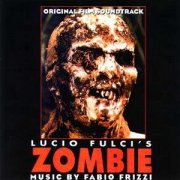 |
Zombi 2 (1979, 28.12) ***/T |
|
| The Boat Introduction Zombie Eyeball Escape From the Flesh Eaters The Cab Ride Menard's Duty Matool Ann & Peter |
Voodoo Rising Matool 2 Escape From the Flesh Eaters 2 Maggots |
|
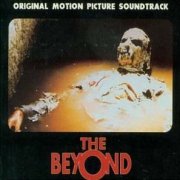 |
The Beyond [a.k.a. L'Aldilà] (1981, 39.58) ***/TT |
|
| Verso Lignoto Voci dal Nulla Suono Aperto Sequenza Coro e Orchestra Oltre la Soglia Voci dal Nulla Suono Aperto Voci dal Nulla |
Giro di Blues Verso Lignoto Sequenza Ritmica e Tema |
|
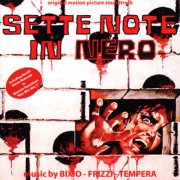 |
Sette Note in Nero [a.k.a. The Psychic, as Bixio-Frizzi-Tempera] (2006, recorded 1977, 53.27) ***/T |
||
| Sucidio (Prologo) With You (Titoli) Tunnels Strane Visioni Allucinazioni Abbatimento del Muro 7 Note (film version) Tracce Sul Muro (film version) |
Concerto alla Radio Ritrovamento del Cadavere Fuga 7 Note (film version #2) Fuga Seconda Il Ritorno di Francesco Conversazione La Lettera |
Aggressione Murata Viva e Salvataggio (Epilogo) Sette Note in Nero (Finale) With You (instrumental unused) 7 Note (single version) Tracce Sul Muro (single version) |
|
Current availability:
Mellotrons used:
While never actually being a member of Goblin, Fabio Frizzi has worked with them (notably on the Il Reale Impero Britannico project in 1976) and, like them, is best known for his work on Italian slasher flick soundtracks. His first solo effort (to my knowledge) was for Lucio Fulci's gore-fest Zombi 2, a.k.a. Zombie, a.k.a. Island of the Living Dead, Zombie Island, Zombie Flesh Eaters and Woodoo, amongst others, available in a multitude of versions, all cut differently, all basically copping ideas from Giorgio Romero's Night of the Living Dead something rotten. However, I'm not here to review the film, which I've no interest in seeing anyway. The soundtrack (unsurprisingly) is reminiscent of some of Goblin's work, although Frizzi has his own voice, particularly on the 'ethnic' bits.
As with the film itself, the soundtrack seems to've been released in a multitude of formats, so I'm not even sure the above tracklisting is correct or complete, but it seems to cover the various themes used without repetition, so it's going to have to do. Well, it's a perfectly competent horror soundtrack, its best bits probably being the main theme, Eyeball (a notorious scene, apparently) and the synth-heavy The Cab Ride. Mellotron on one track only, but at least it's one with high visibility, Zombie itself (the main theme), with unmistakable brooding male voices on a suitably doomy piece.
Frizzi produced another two soundtracks in 1980, Contraband and City of the Living Dead, at least one of which is apparently no more or less than remixed versions of Zombie material. His next definitely all-new work was '81's The Beyond, a.k.a. ...E Tu Vivrai Nel Terrore! L'Aldilà (inspiring the Black Widow label's album of almost the same name), showcasing quite a different feel to Zombi 2, with a bigger budget, real orchestra and choir alongside the keyboards. Best tracks? Verso Lignoto (presumably the main theme), the various versions of Voci Dal Nulla and the first version of Suono Aperto; the first three tracks, basically. More Mellotron this time round, with flutes and more of those marvellous voices on Verso Lignoto, double-tracked male voices and background strings on Voci Dal Nulla, background choir doubling the real one on the second version of Voci Dal Nulla, while the third version is strongly reminiscent of the first and the second version of Verso Lignoto repeats the parts from earlier.
2006 brought the long-awaited full release of 1977's Sette Note in Nero (a.k.a. Seven Notes in Black, a.k.a. The Psychic), originally credited to Frizzi's mid-'70s soundtrack-writing trio, Bixio-Frizzi-Tempera, with Franco Bixio and Vince Tempera. While dark, it's not quite as creepy as Zombi 2 or The Beyond, but then, that would be going it some... Mellotron choirs (presumably from Frizzi) on a handful of tracks, although most of them are minor variations on 7 Note, plus minor use on Concerto Alla Radio and Aggressione, to rather ordinary effect, to be honest.
See: Goblin
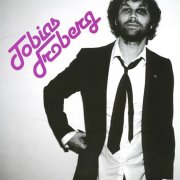 |
Turn Heads (2008, 48.42) **½/T½ |
|
| Blissful She is Becoming Her Mother Again Slipping Under the Radar Just Behind a Brickwall Take It Easy (We're Birds of the Air and the Sky is Wide Open) Landing You Are Someone I Can Believe in |
Tomorrow Miles to Go Delicate Dance of Ghosts Turn Heads Grace (live) |
|
Current availability:
Mellotron used:
Tobias Fröberg is a Swedish singer-songwriter of the 'modern, quite drippy' variety (n.b. I believe this is known as 'heartfelt' or similar by fans of the genre). 2008's Turn Heads is his third album and, while it has a couple of more uptempo tracks, the bulk of it is the kind of wet and watery stuff peddled by any number of 'sensitive' male singers, albeit nowhere near as bad as the likes of James Blunt or (God help us) Daniel Powter.
Fröberg plays the Mellotron himself, with flutes and strings on Just Behind A Brickwall, clearly real, as the final chord wobbles to a conclusion, with more wobbly strings and cellos on You Are Someone I Can Believe In. Two decent Mellotron tracks, then, but a rather dreary album, I'm afraid. Nice to hear an (ostensibly) real machine used for once, though.
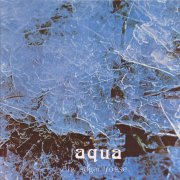 |
Aqua (1974, 45.57) ****/TT½AquaPanorphelia NGC 891 Upland |
 |
Epsilon in Malaysian Pale (1975, 34.15) *****/TTTTEpsilon in Malaysian PaleMaroubra Bay |
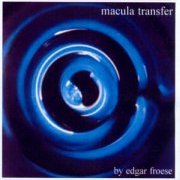 |
Macula Transfer (1976, 35.50) *****/TTTTTOS-452AF-765 PA-701 QUANTAS-611 IF-810 |
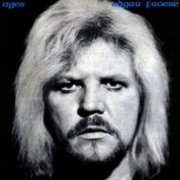 |
Ages (1978, 83.18) ***/TT½MetropolisEra of the Slaves Tropic of Capricorn Nights of Automatic Women Icarus Childrens Deeper Study Ode to Granny A. Pizarro and Atahuallpa Golgatha and the Circle Closes |
Current availability:
Mellotrons used:
While I like the Tangs' Edgar Froese's solo output, I can't pretend to understand it in the way that aficionados do, so Dave Dewdney has kindly reviewed all the relevant releases for me:
Edgar Froese's debut solo album Aqua is counted as one of his best. Here Edgar fuses running water sounds with synthetic bubbling sounds courtesy of his VCS3 synthesizer. Aqua the title track contains no Mellotron at all, quite odd for a man who honed his skill on the Mellotron on the TD album Atem. But here on this track you have effects, deep washes of organs and strange synth noises. Panorphelia, the next track, is awash with a white noise rhythmic pulse and a Mellotron, however Edgar just tends to repeat the main melody over and over again until it fades away before the boredom sets in. The other two tracks, NGC-891 and Upland, follow much the same styles, NGC-891 has the Moog by Chris Franke on it and Upland is just Edgar improvising with his organs and some backwards tape effects. A must-have album.
Edgar's next album Epsilon in Malaysian Pale is a much better affair, I mean absolutely packed to the gunnels with Mellotrons, a Mark-V with tapes specially recorded by the BBC for him. The title track Epsilon kicks off with monkeys/birds in a sweaty tropical jungle (Inspired by TD's tour of Australia in 1975) and then in comes the constant swells and lulls of Edgar's Mellotrons, using just strings and flute, actually giving his 8-voice choirs a miss on the whole album. Here he shows just what you can do with such a marvellous instrument. He also uses a Moog synthesizer on this track for the small 4-minute rhythmic part and ends the track with another smattering of Mellotrons. Maroubra Bay the second track begins with the Mellotron strings/brass, with Edgar playing major/minor keys to give it a more sinister feel, then adding washes of white noise from his VCS3 synth into which a tumbling Moog rhythmic pulse sets up the rest of the track. In fact, Maroubra Bay is actually the masterpiece of this album. Now, if Chris Franke and Peter Baumann had been on this track, it would have become another milestone in TD's recording history.
Froese's third solo album Macula Transfer is somewhat of a sought-after rarity since it was only made available in Germany on the Brain/Metronome Label. However, 22 years later it was re-released by Manikin Records to the disgust of Froese himself who ordered it to be stopped because he wanted to release a new version of it himself. The tracks on this album all refer to flight numbers while TD was touring in 1975 and 1976. This album was recorded in June 1976; Edgar recorded this album just for fun? Now it's highly prized amongst collectors and aficionados. Edgar again puts the Mellotrons to good use on this album. The album opens with OS-452 which is a mixture of Edgar's guitar work and Mellotron techniques. AF-765 is a bit weird with backwards effects and a ping-pong Moog rhythm sequence continuously pounding away, he adds electric guitar, his voice fed through his VCS3, sinister staccato stabs on his Mellotrons, the track then just gets faster and faster till it ends very strangely. PA-701 starts with Edgar feeding his Mellotron through his VCS3 inputs and is probably the best track on this album, using a mixture of choirs and strings for some lovely melodies and also introduces the gorgeous Mellotron flute on which the track ends. QUANTAS-611 is five minutes of very sinister Mellotrons all the way from beginning to end. IF-810, the last track, begins with a heavy Moog rhythm-pulse once again unto which Edgar sets up the main melody and puts in some nice Mellotron strings here and there. If you don't have this album, I suggest you try and locate a copy, any Mellotron enthusiast cannot do without this one to their collection.
Ages was Edgar Froese's fourth album recorded during 1977 which was a very turbulent time, with Peter Baumann having left TD and Edgar having to cancel concerts in America and Europe. So with the time left he recorded Ages, but having recorded so much material it ended up being a double album. People have mixed feelings about this album. Ages is okay in parts, the rest is just either repetitive and nauseating where the boredom sets in quite quickly. The album kicks off with Metropolis where Edgar adds synths and Mellotrons (strings and brass) and Klaus Kreiger just bangs away repetitively away on his drums. Era Of Slaves is much better where there is a good measure of Mellotron flutes and strings nicely in the mix on this track. The big track Tropic Of Capricorn has very little Mellotron on it all, more piano, synth and drums. The rest of the tracks are just more banal and silly and except for Pizzaro And Atahualpa there is a good dose of Mellotron throughout the rest of the tracks. Incidentally if you get the CD re-release by Virgin you will notice that Golgatha And The Circle Closes is missing; they couldn't fit the track on the CD and left it off. Most collectors will buy this to add to their collection, but is sometimes best avoided playing altogether. If you like this album - enjoy it, it's just a matter of personal taste.
Edgar's next album Stuntman 1979 was a purely digital affair utilising the new digital synthesis technology, although he added analogue synths and a grand piano to it, but left out the Mellotron altogether (put away only to come out briefly on TD's Tangram album at the end of part-two just using the choirs). After that it was just a digital affair. A sad end to Edgar's and TD's musical instrument history.
| Dave Dewdney |
Andy adds: Thanks to Dave for those reviews, I just need to add that Pizarro And Atahuallpa from Ages most certainly does have Mellotron on it, a repeating string line throughout the first part of the track plus what sounds like it could well be Mellotron acoustic guitar (thanks for that, Tommy).
See: Tangerine Dream
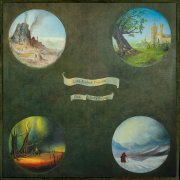 |
Fire Fortellinger (2023, 46.53) *****/TTTTRytter av DommedagEt Sted Under Himmelhvelvet Jærtegn Naturens Katedral |
Current availability:
Mellotron(s)/Chamberlin used:
During Covid lockdown, Norwegian Mellotronist par excellence Lars Fredrik Frøislie found himself at a loose end, resolved by recording a solo album, the material for which, he openly admits, would probably have otherwise ended up on the next Wobbler album. Well, Wobbler's loss is our gain, as Fire Fortellinger (Four Tales) is truly magnificent, just possibly better than anything Wobbler themselves have yet managed. Two shorter tracks are bookended by two quarter-hour pieces, all featuring Frøislie's Norwegian-language vocals; a surprise, as I'd expected an instrumental set, for some reason. While I'm not convinced this is up there with the first two Änglagård albums (well, what is?), this does all the expected symphonic moves, with key-changes in abundance and all the twists and turns you'd expect, not to mention a bucketload of haunting Nordic melodies.
Unsurprisingly, Frøislie slathers Mellotron (and a bit of Chamberlin) over everything, to deeply pleasing effect, chiefly strings, of course, with little bursts of flute (from both instruments?), cello and choir here and there. And is that plucked mandolins I hear at one point? Frøislie plays the instruments strategically, never overusing them, while rarely letting a chance to get some in go by. Anyone who loves Scandinavian symphonic progressive of the last thirty years needs to hear Fire Fortellinger. Now. An absolute triumph.
See: Angst Skvadron | Annot Rhül | Arts the Beatdoctor | Ásmegin | Caligonaut | Finn Coren | Electones | Haakon Ellingsen | Endezzma | In Lingua Mortua | Koldbrann | Rhys Marsh & the Autumn Ghost | Opium Cartel | Shining | Three Winters | Trollfest | Tusmørke | White Willow | Wobbler | Wudewuse | Xploding Plastix | Det Enkle Er Ikke Alltid det Beste...
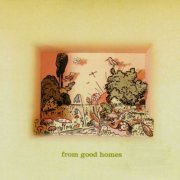 |
From Good Homes (1998, 57.11) **½/T |
|
| Kick it on Wake Bang That Drum The Day is Alive Ride All Night Goin' Out Decision Song The Giving Tree |
The Butterfly & the Tree House on a Hill Broken Road Cold Mountain |
|
Current availability:
Chamberlin used:
The embryonic From Good Homes formed in the late '80s, becoming FGH around 1990, finding themselves dubbed 'hick pop' by a journalist, which, going by their (third?) eponymous 1998 release, sounds about right. Think: roots rock with a dash of Springsteen, topped with a helping of fiddle-and-mandolin folk, in a manner akin to many jambands. I've never seen this lot at a festival, but I feel like I have. So why is a twelve-song album nearly an hour long? Because almost every track is a minute or two too long, that's why. As I said, jamband.
Patrick Warren does his usual Chamberlin thing on The Day Is Alive, with a background string part; perfectly pleasant, but you wouldn't notice were it not there. This is one of those infuriating albums that refuses to be either that good or that bad, making it near-impossible to write about. Let's just say, 'don't bother'.
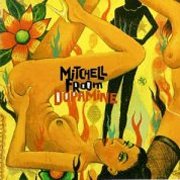 |
Dopamine (1998, 31.43) ***½/½ |
|
| Tastes Good The Bunny Kitsum Dopamine Watery Eyes Monkey Mind Noodletown Wave |
I'd Better Not Permanent Midnight Overcast Fruta Prohibida |
|
Current availability:
Chamberlin used:
Mitchell Froom's career goes right back to the late '70s (briefly playing in Ronnie Montrose's Gamma), before he moved into production in the '80s, high-profile clients including Crowded House, Richard Thompson and his (then) wife, Suzanne Vega. He released his first solo album, The Key of Cool, in 1984, waiting until 1998 to follow up with Dopamine, basically a set of musical vignettes, loads of Froom's famous friends appearing, not least Jerry Marotta, Sheryl Crow and Ron Sexsmith. Every track is different to every other, covering a broad base of musical styles, loads of odd stuff thrown in, Froom playing (amongst others) a Marxophone, Indian harmonium, Claviola, Optigan and Orchestron... I think you get the picture.
Of course, Froom is known for his dedication to old and/or weird keyboards, particularly the Chamberlin, so it comes as a slight surprise that it's featured so little here. His one Chamby track (fear of becoming typecast?) is Monkey Mind, although it's not so easy to tell what he's using it for: flutes? Although there's a polyphonic part, a flautist is credited. Jazzy acoustic guitar? Probably depends on which model Chamby is being used. It's almost certainly one of the above, but used so little that a half 'T' is all I really feel I can give. Will you like this album? If you like Froom's productions in general, you may very well do, but it's an awfully long way from Crowded House's streamlined, intelligent pop. You have been warned.
See: American Music Club | Stevie Ann | Tasmin Archer | Tracy Bonham | Peter Case | Elvis Costello | Crowded House | Ditty Bops | Dave Dobbyn | Neil Finn | Tim Finn | Los Lobos | Daniel Powter | Bonnie Raitt | Ron Sexsmith | Vonda Shepard | Richard Thompson | Suzanne Vega | Stay Awake
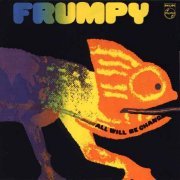 |
All Will Be Changed (1970, 41.56) ***/½Life Without PainRosalie, part 1 Otium Rosalie, part 2 Indian Rope Man Morning Floating, part 1 Baroque Floating, part 2 |
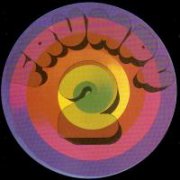 |
Frumpy 2 (1971, 38.59) ***½/TGood WindsHow the Gipsy Was Born Take Care of Illusion Duty |
Current availability:
Mellotrons used:
Frumpy's first album, All Will Be Changed, is one of those 'very much of its time' records, featuring loads of Hammond, lots of studio jamming and (God help us) a drum solo, a sure sign of a dearth of ideas. It's by no means all bad, although repetitive opener Life Without Pain makes one lose the will to live after a few minutes, while the aforementioned drum solo (on Floating, Part 1) is deeply unnecessary. Many tracks segue into each other, possibly the best thing here, Baroque, being sandwiched between the two parts of Floating. Next to no Mellotron from Jean Jacques Kravetz, with a few odd-sounding string chords in Baroque, but nothing you absolutely have to have, to say the least.
Their follow-up, Frumpy 2, is their most progressive album and, particularly when compared to its predecessor, really rather good. Quite a bit of Uriah Heep in their sound by this point; when you think that Heep were yet to produce their classic Demons and Wizards in '71, Frumpy could have given them a good run for their money, had they not been stuck in a non-UK/US market. The music is full-on progressive hard rock, with shedloads of well-played Hammond, great guitar work and English vocals, although it wasn't released outside mainland Europe at the time. On top of his extensive organ work, Kravetz played Mellotron on a couple of tracks; I've had trouble working out exactly what he's using, although the strings have that 'keyed' sound to them. My best guess is an M300; the strings are neither a MkII nor an M400, unless it's a particularly unusual strings set in the latter. Anyway, this unusual string sound crops up on Take Care Of Illusion and Duty, the latter featuring it on a short classical section which I should be able to name, but can't.